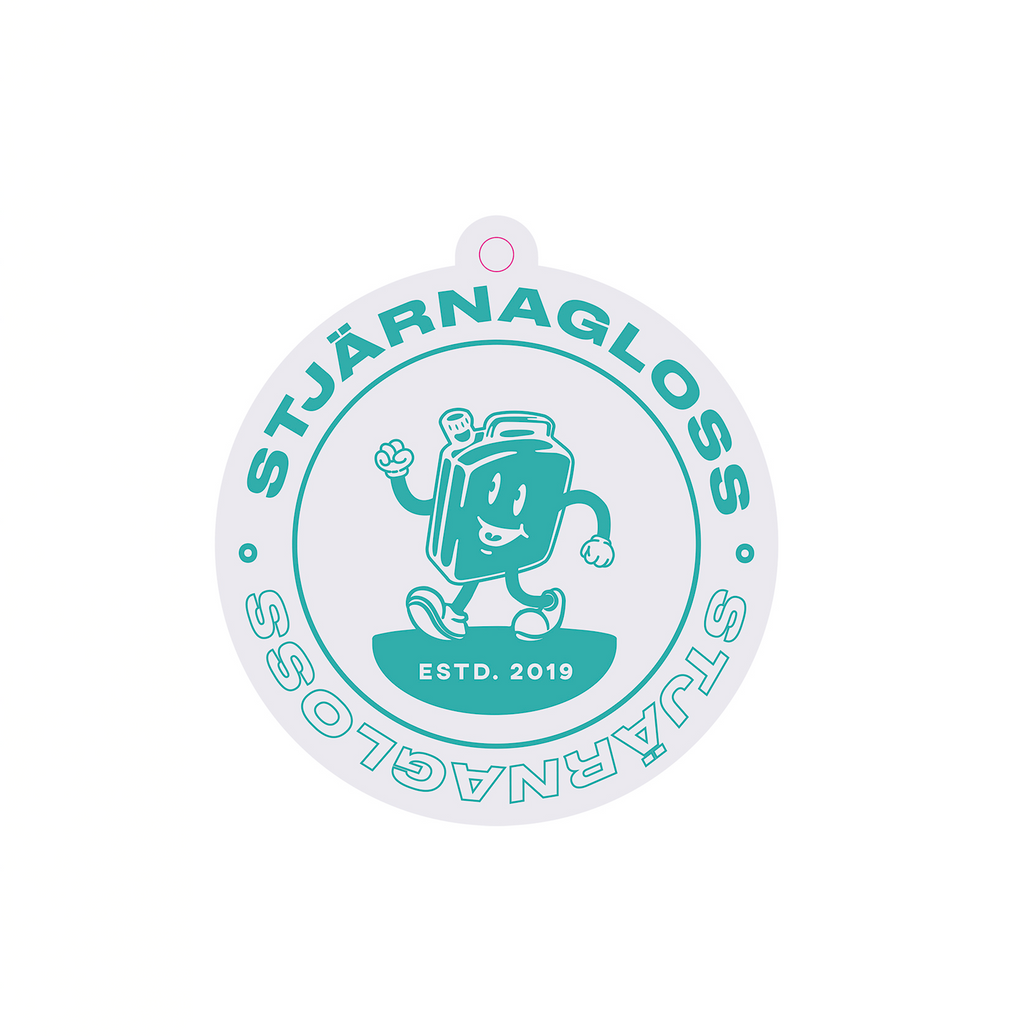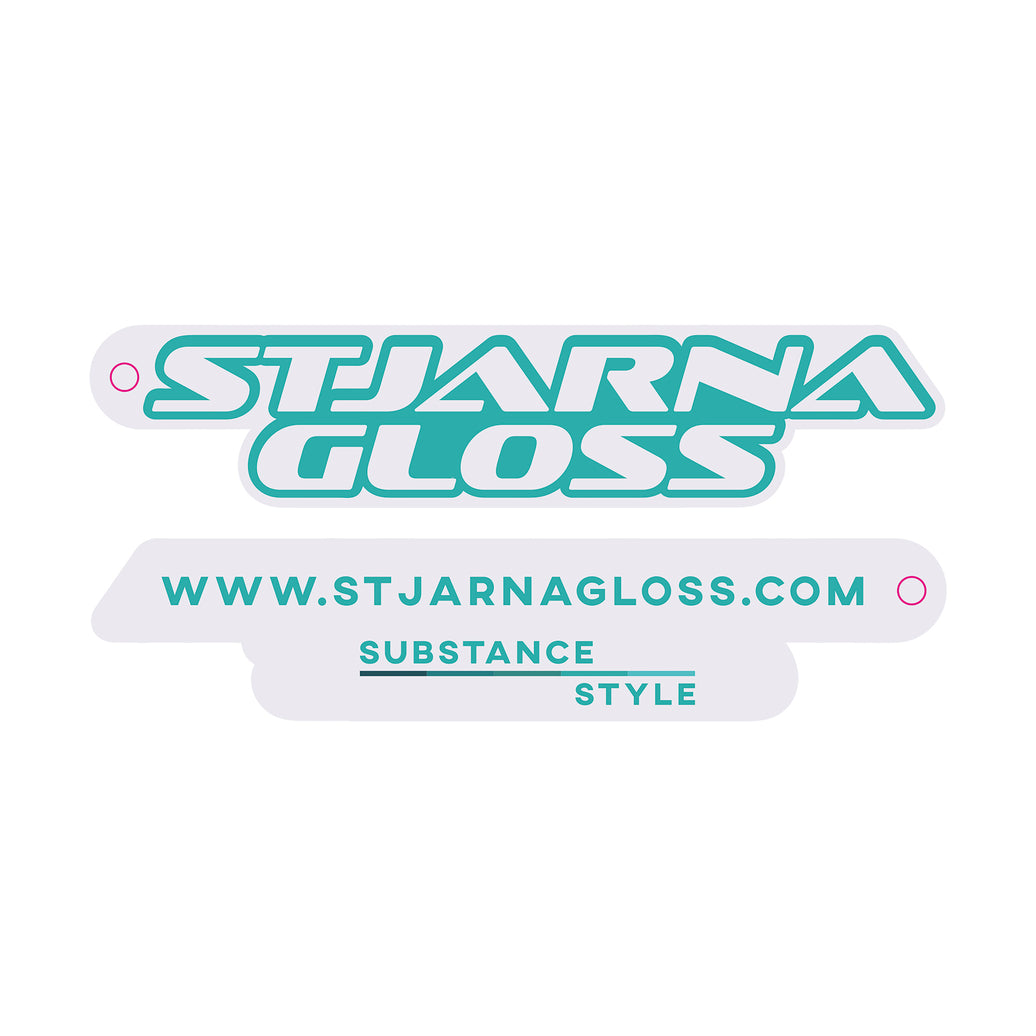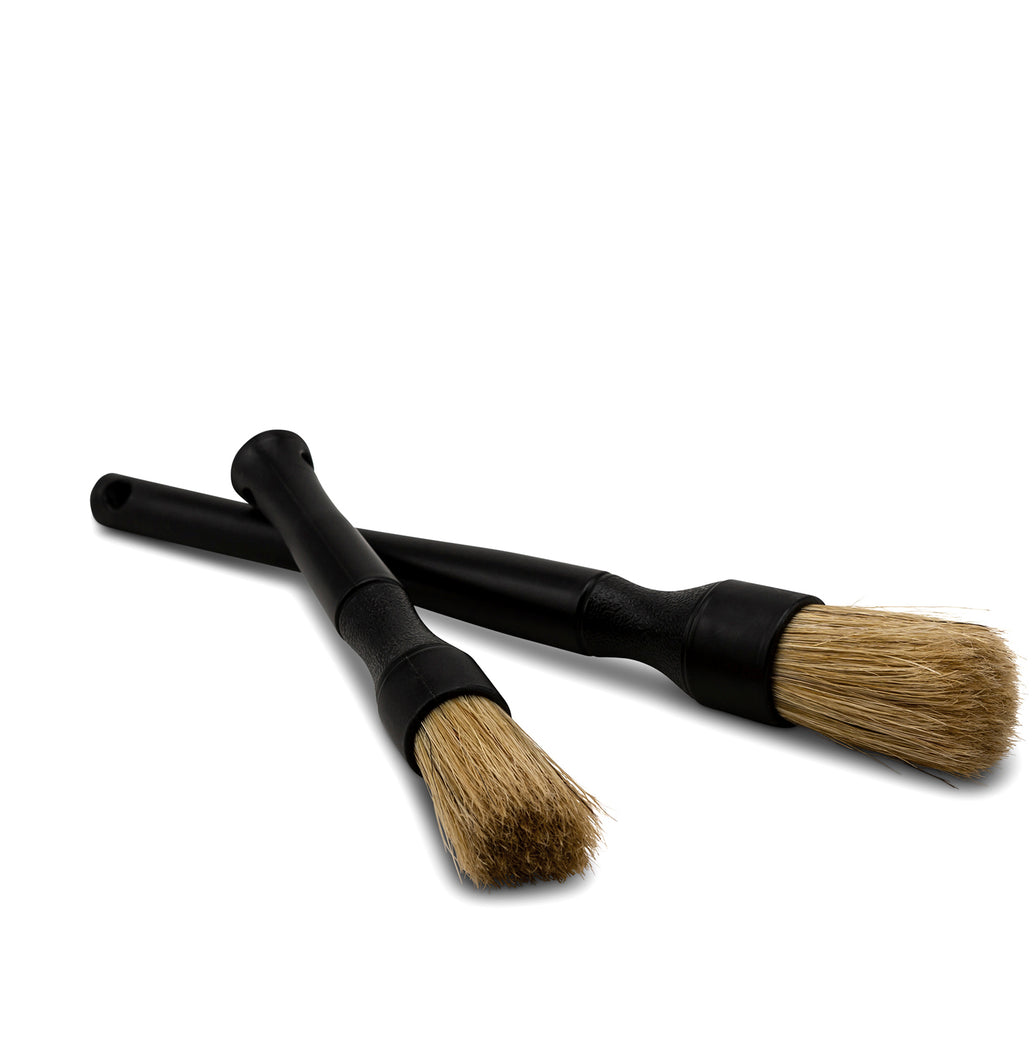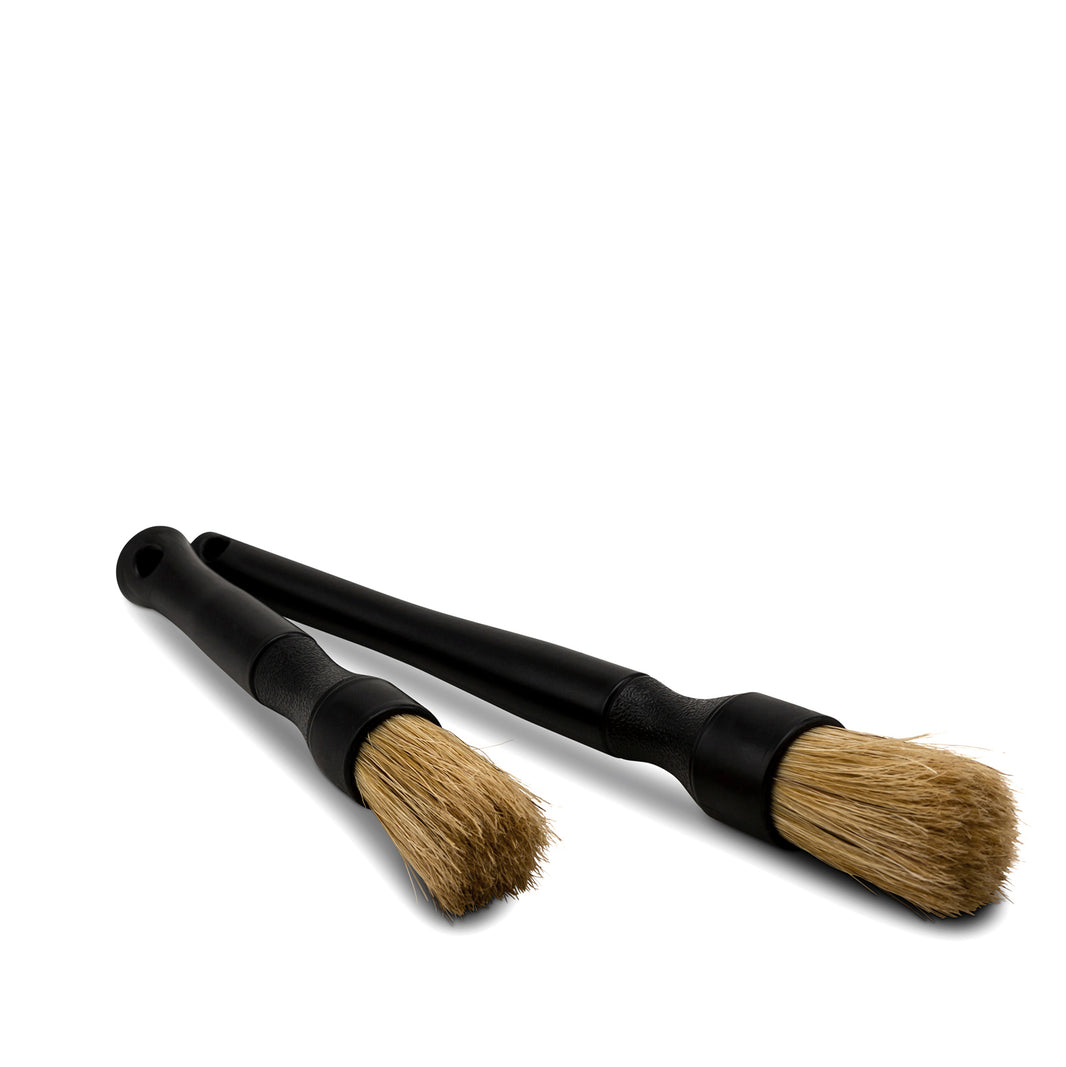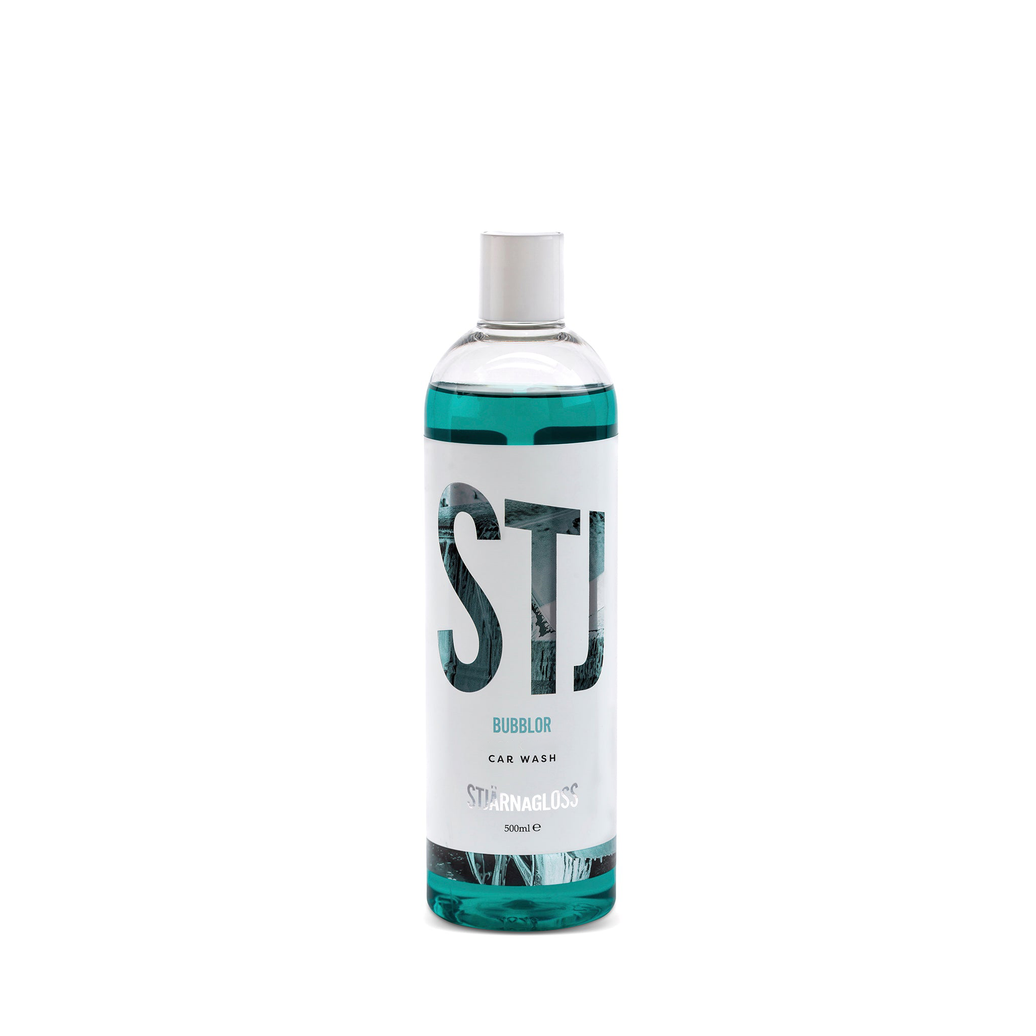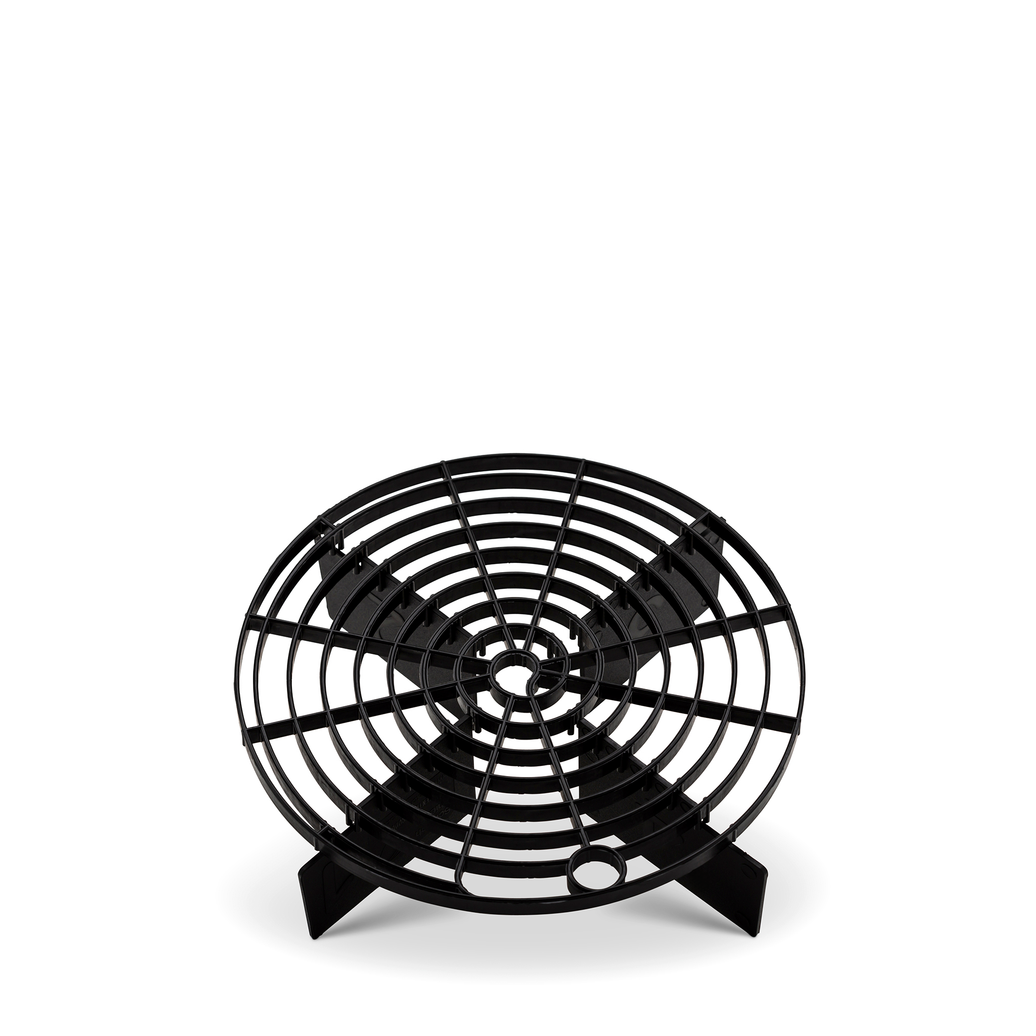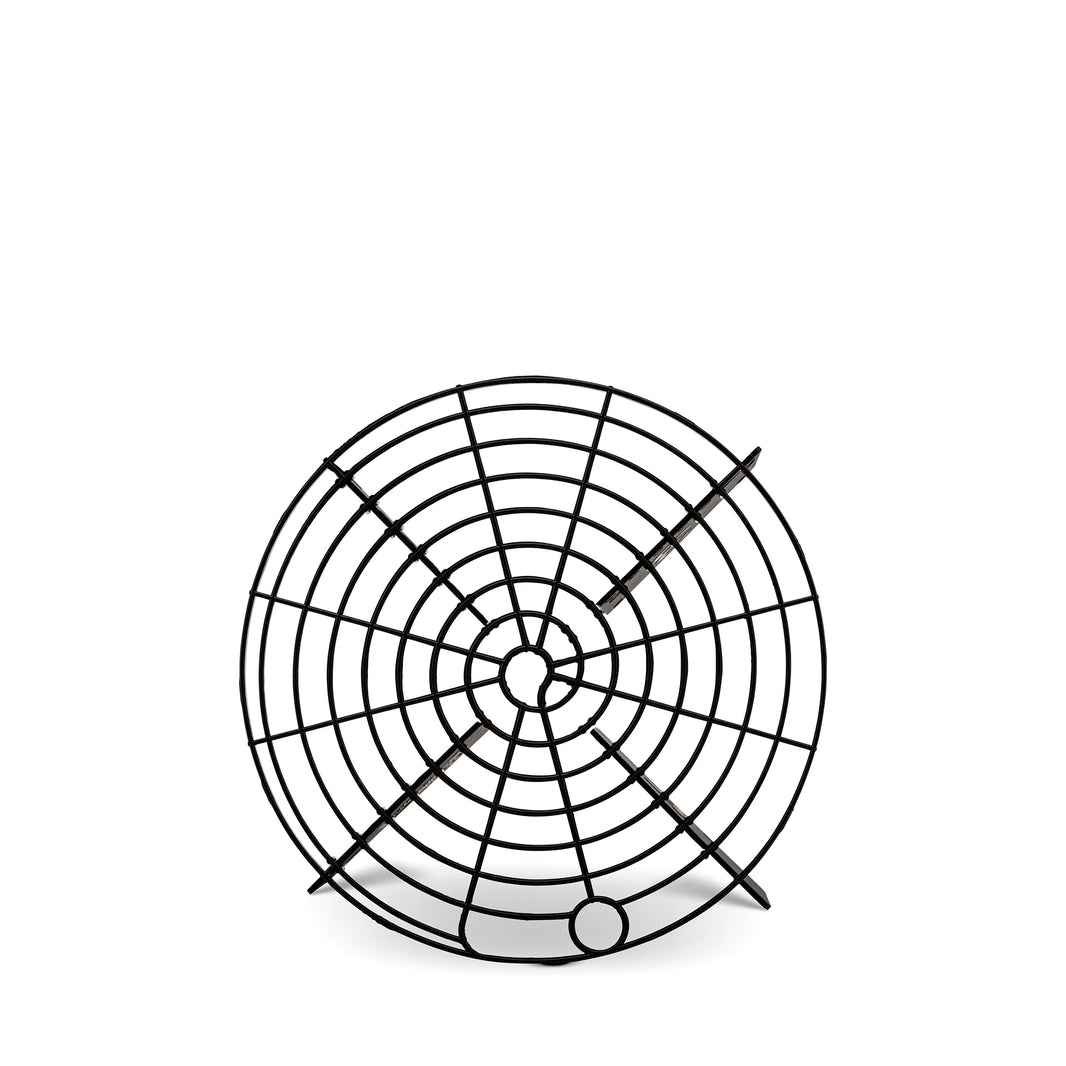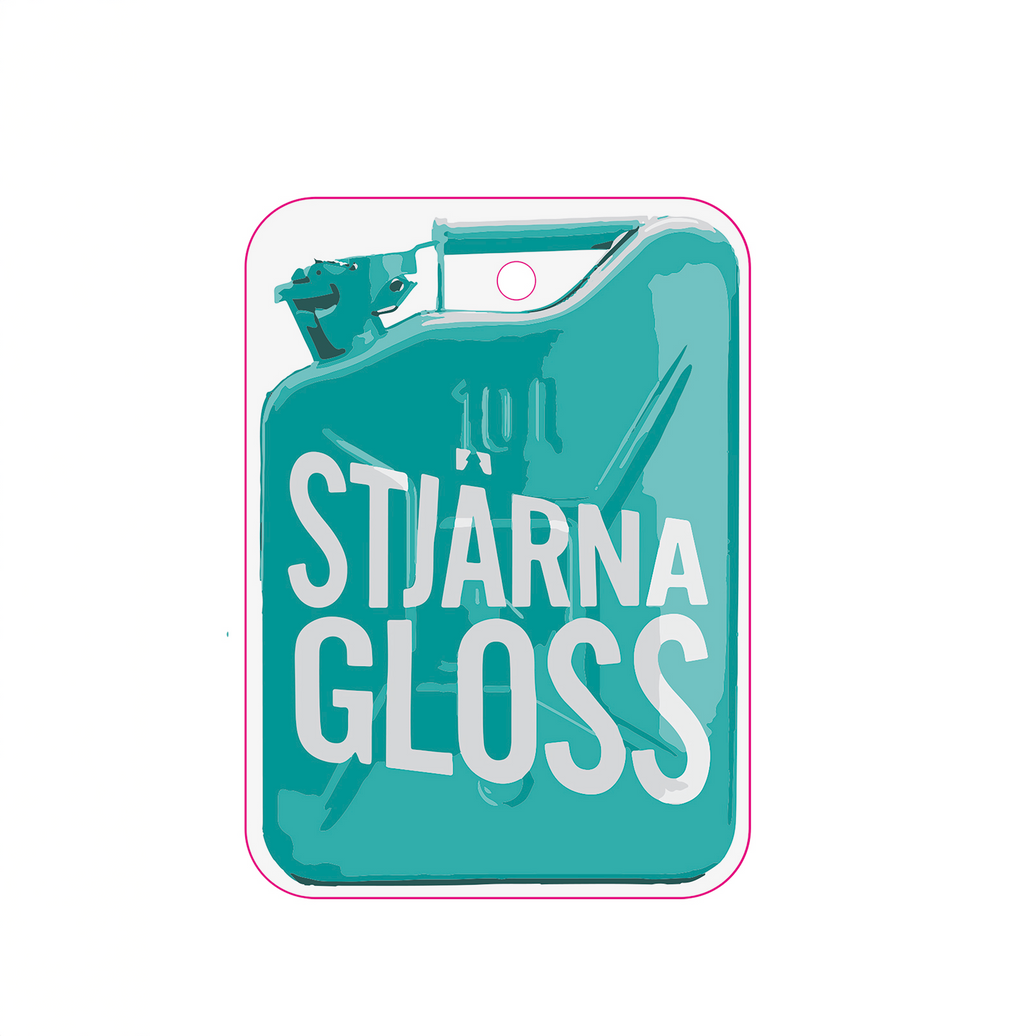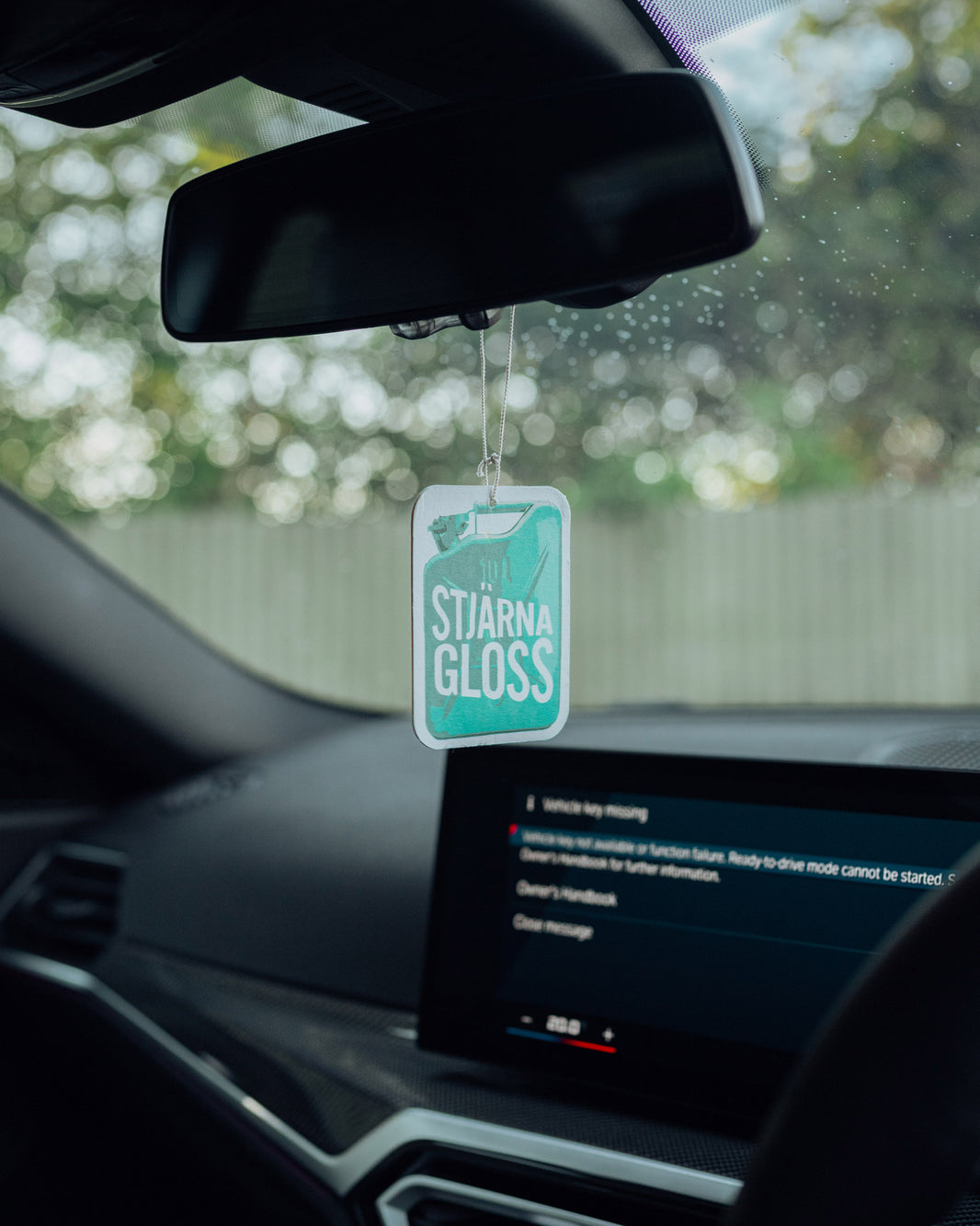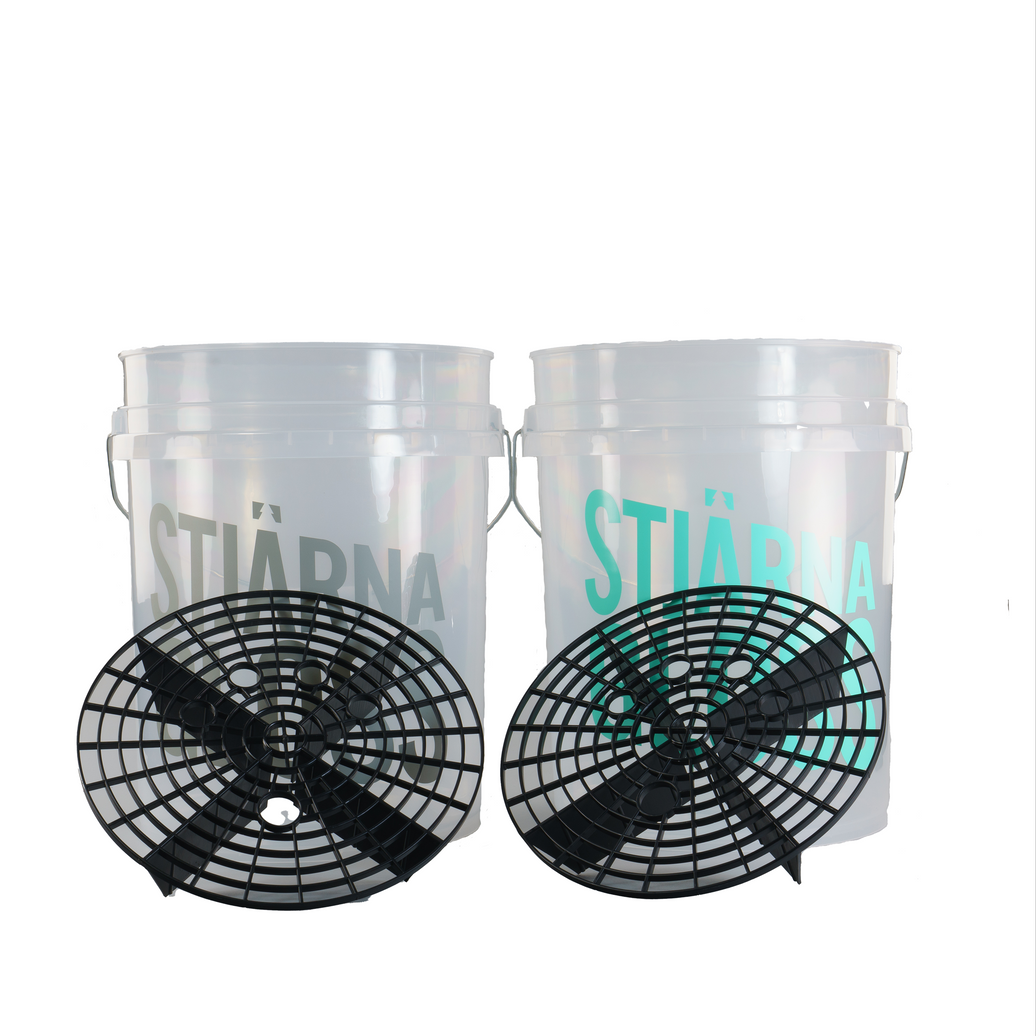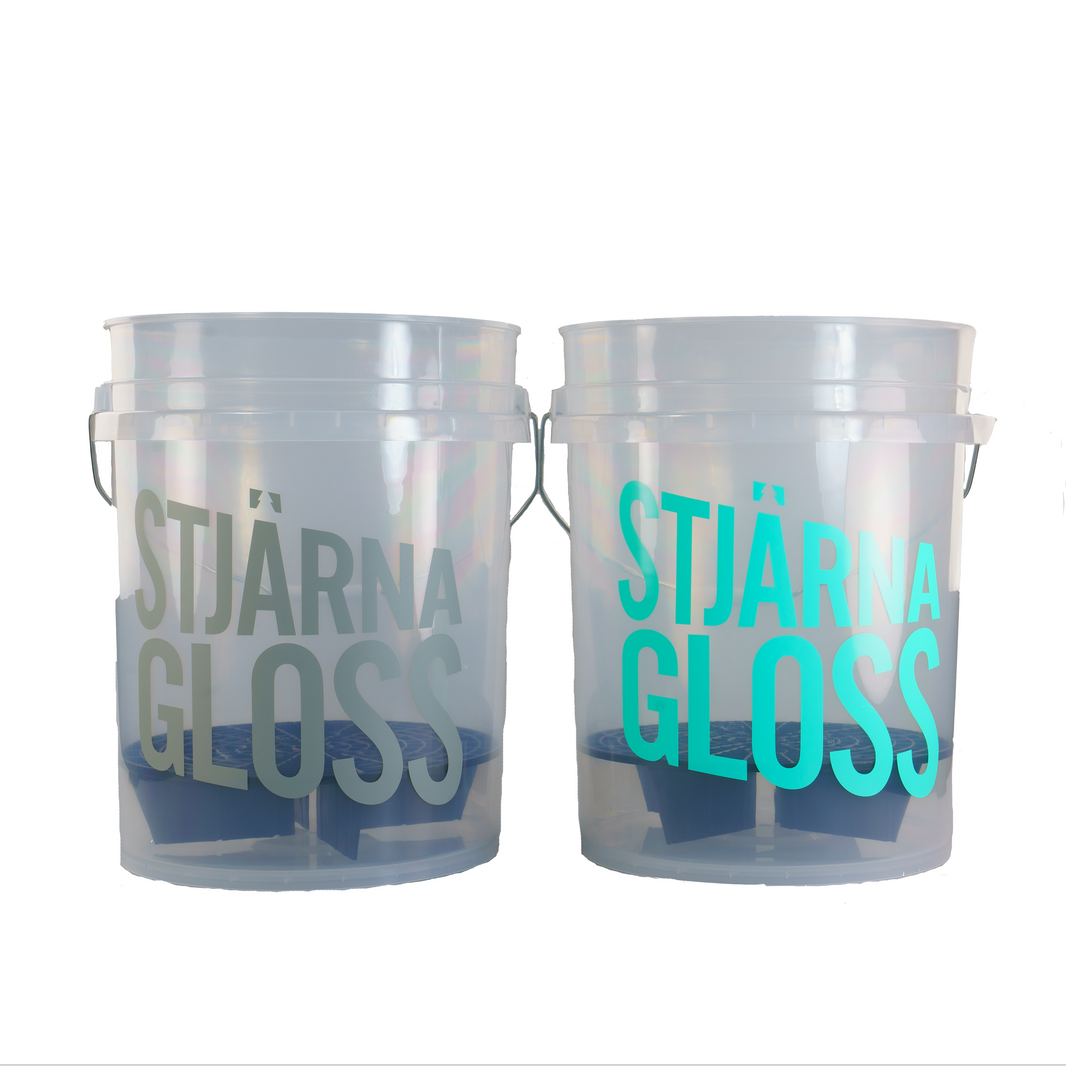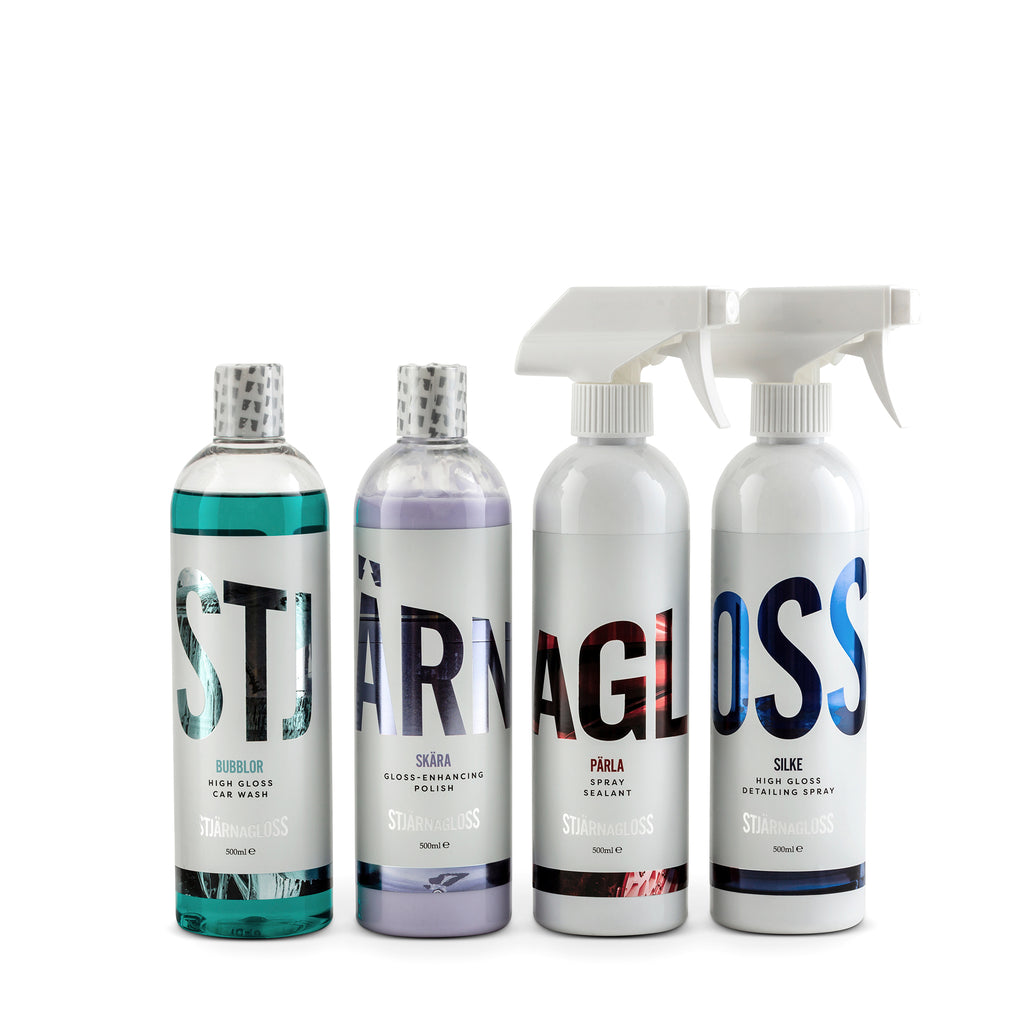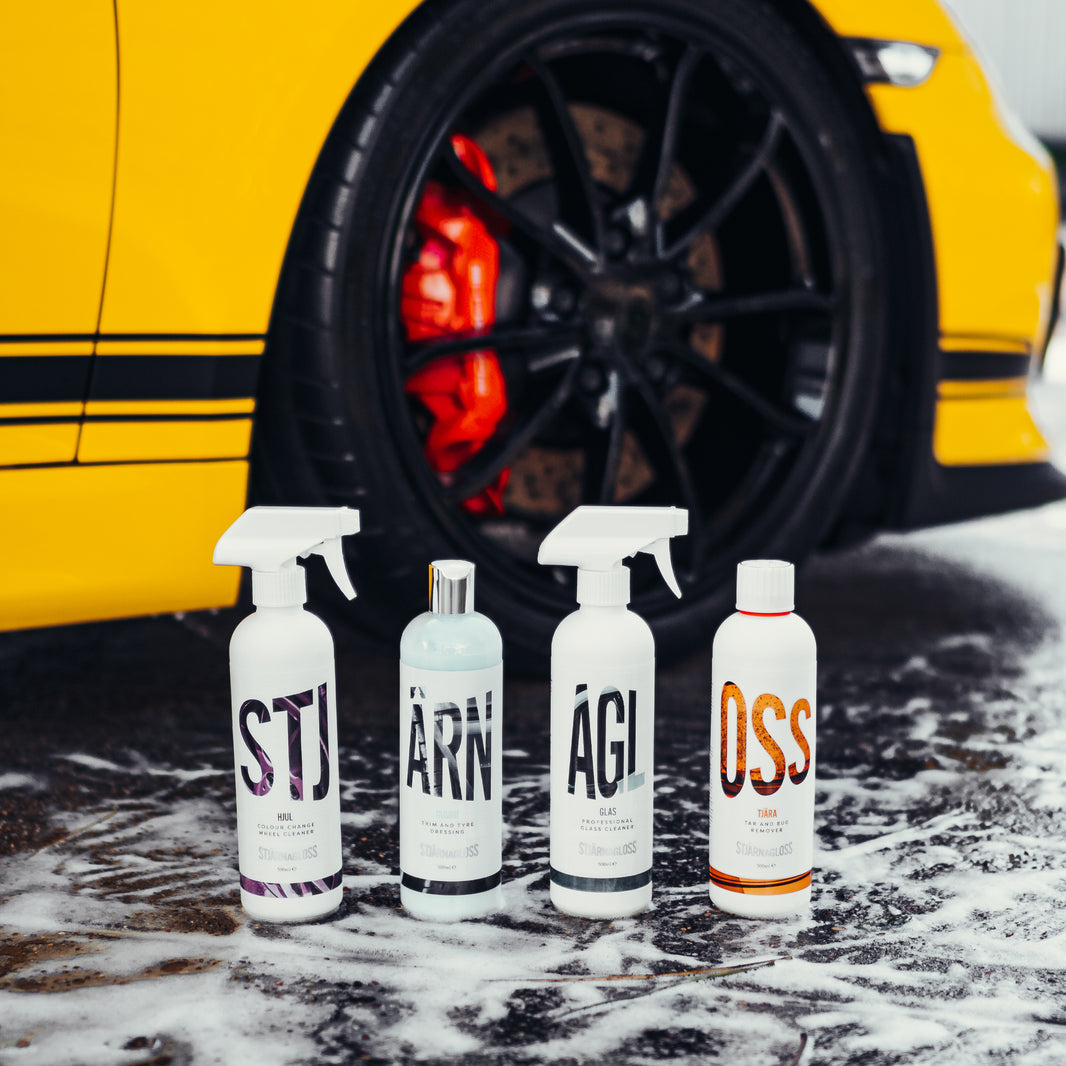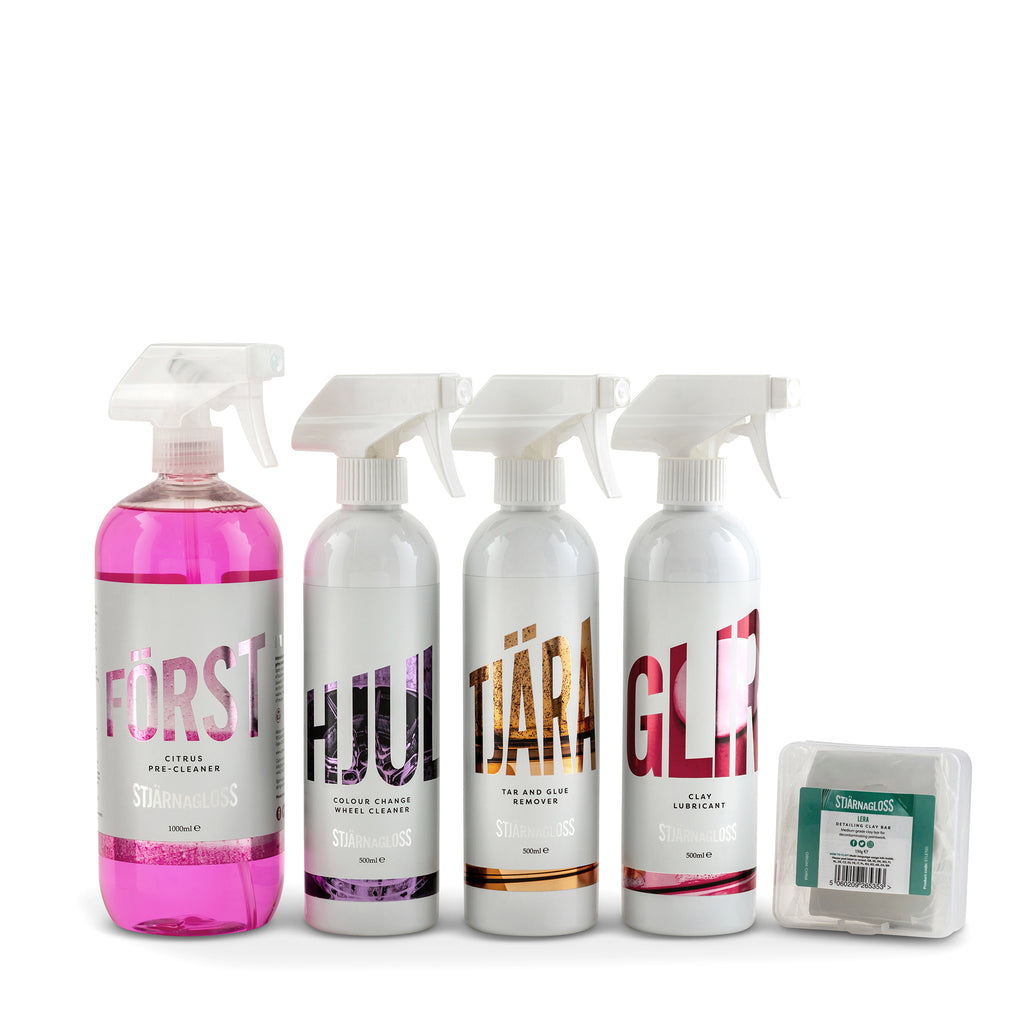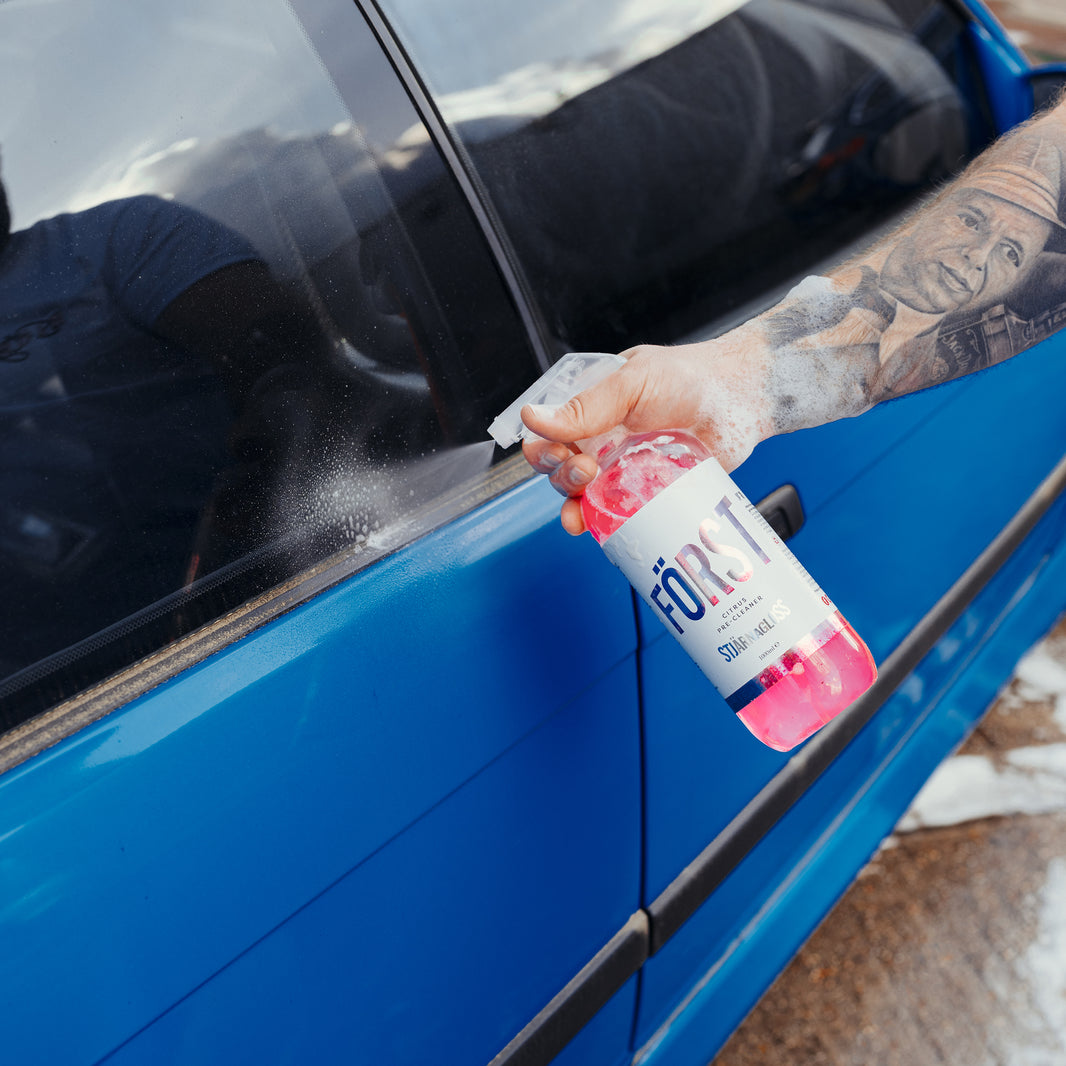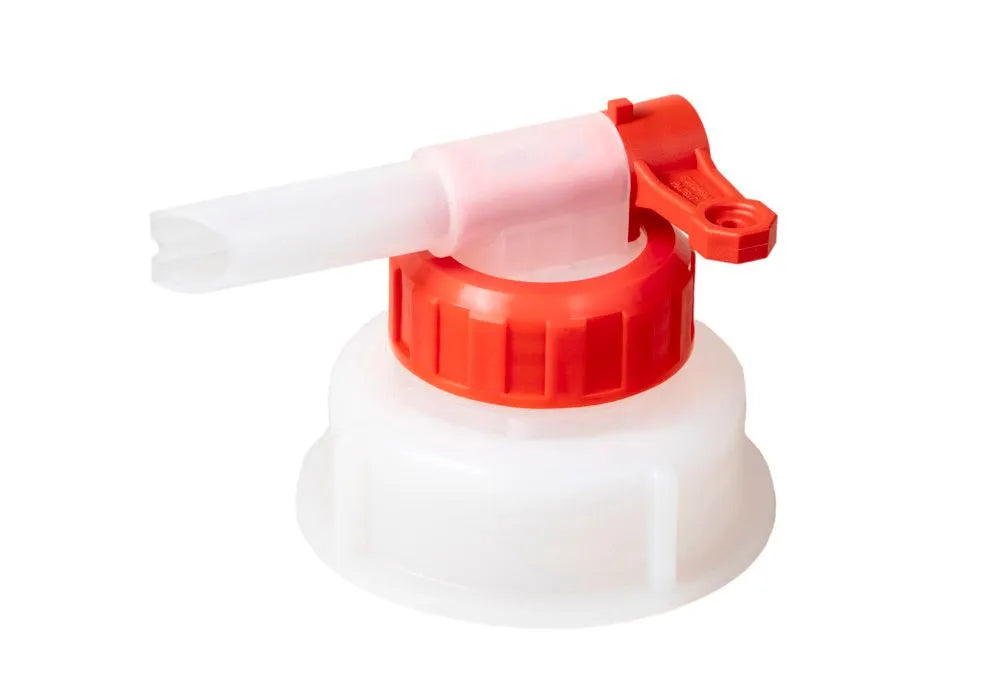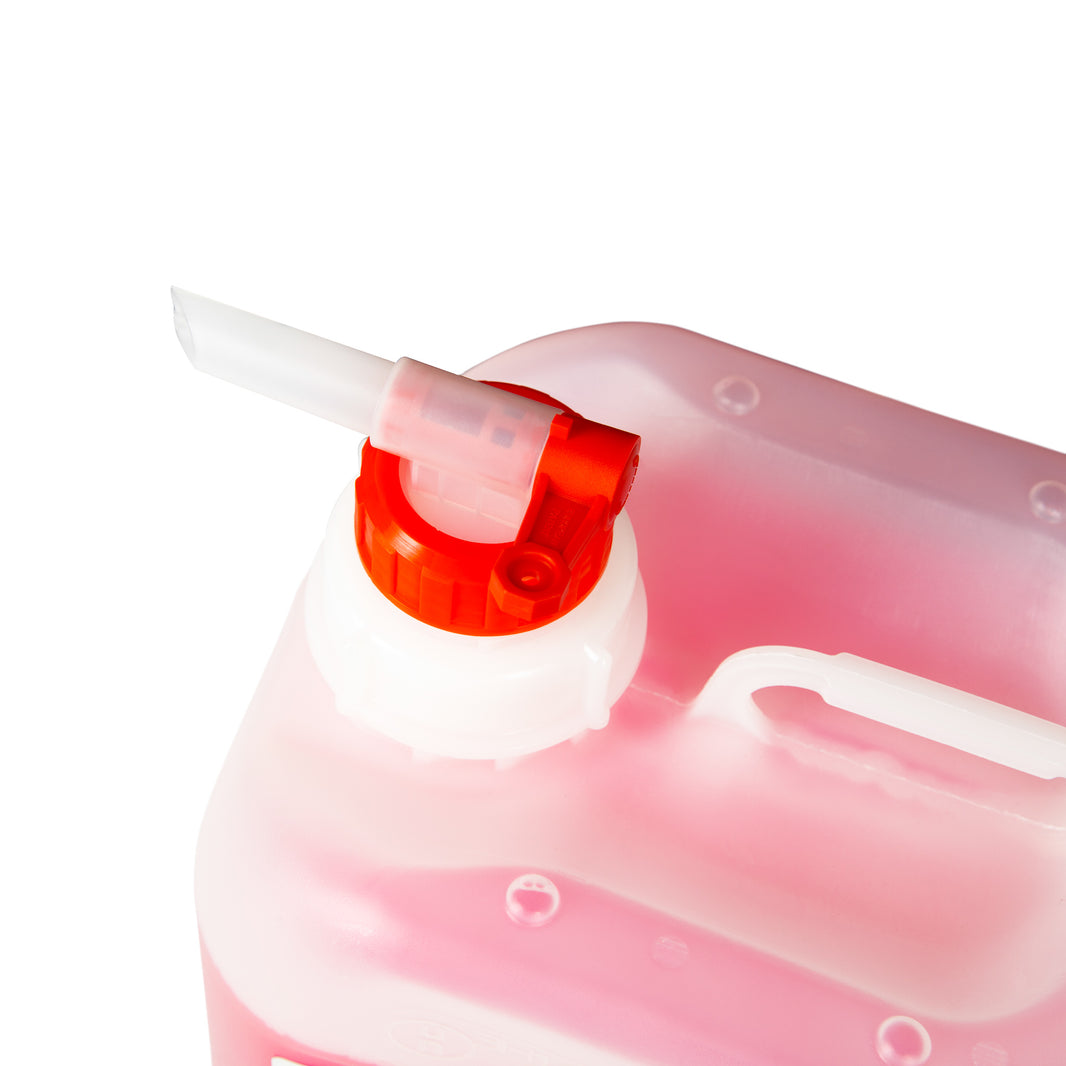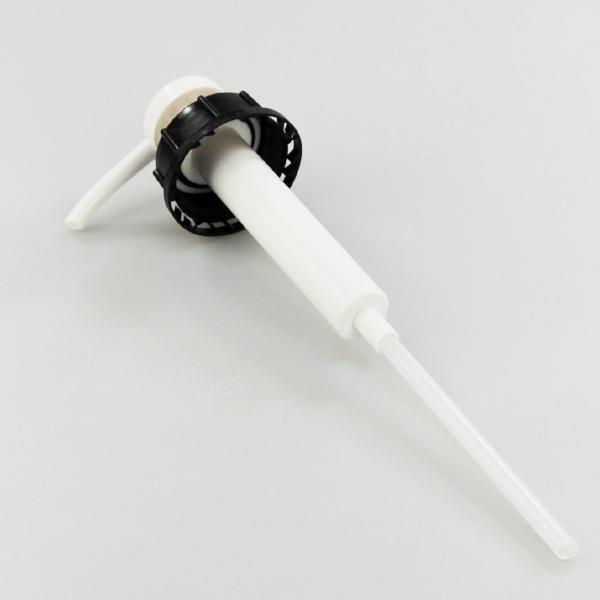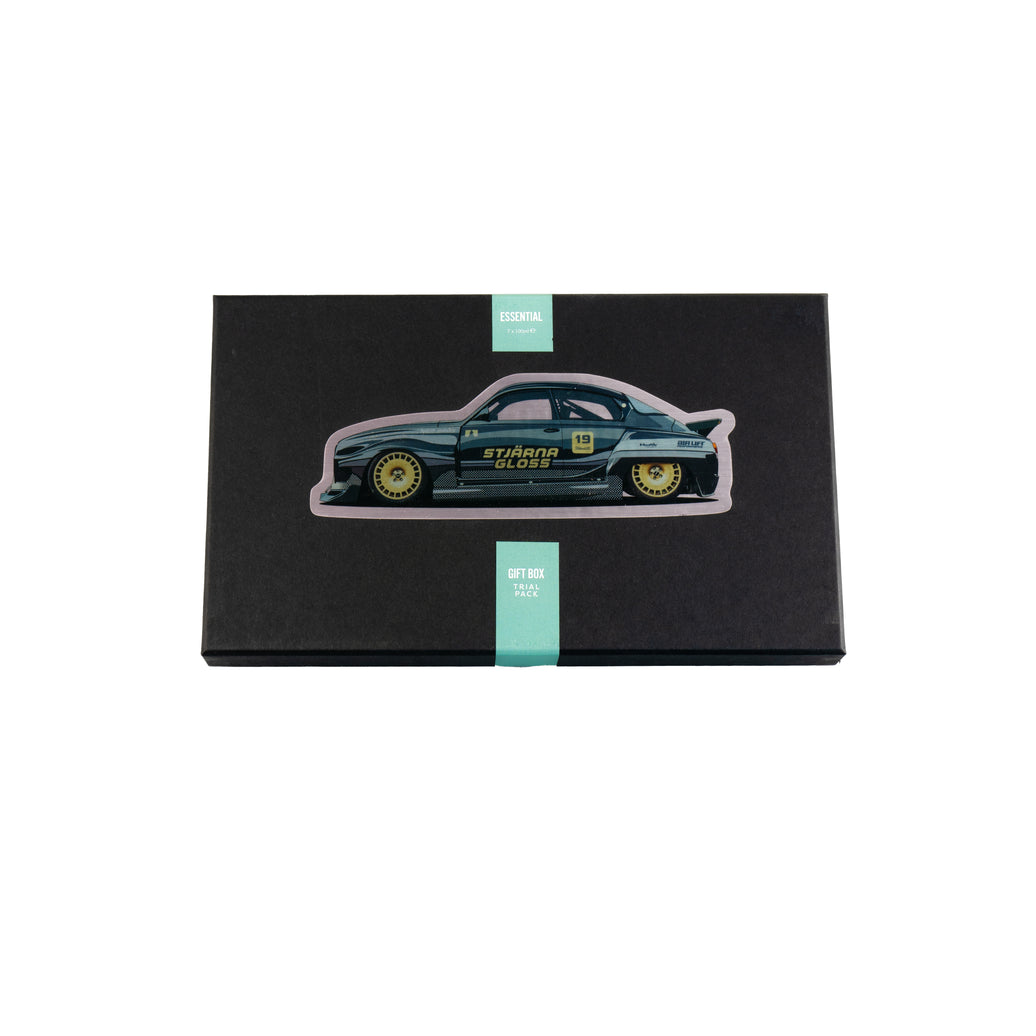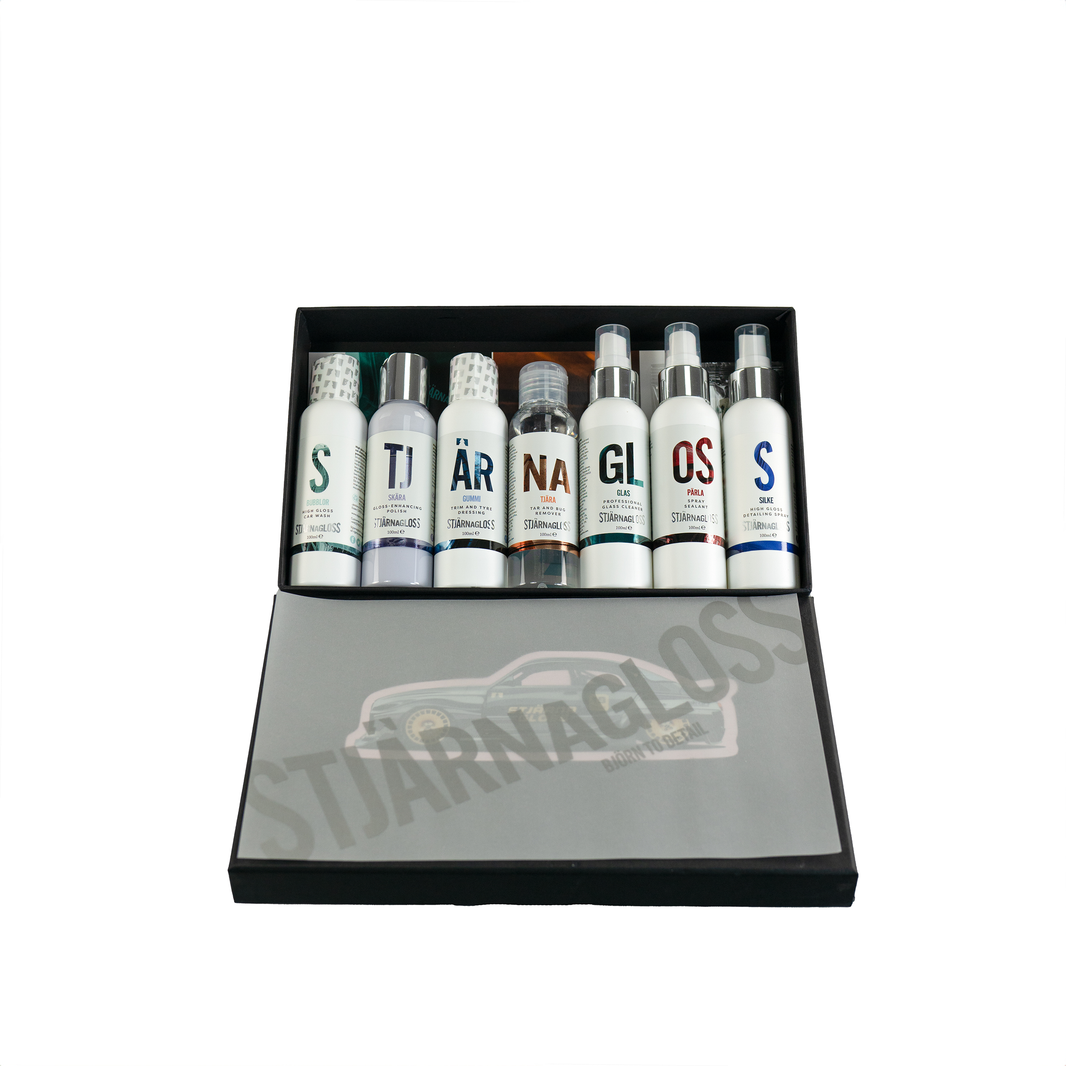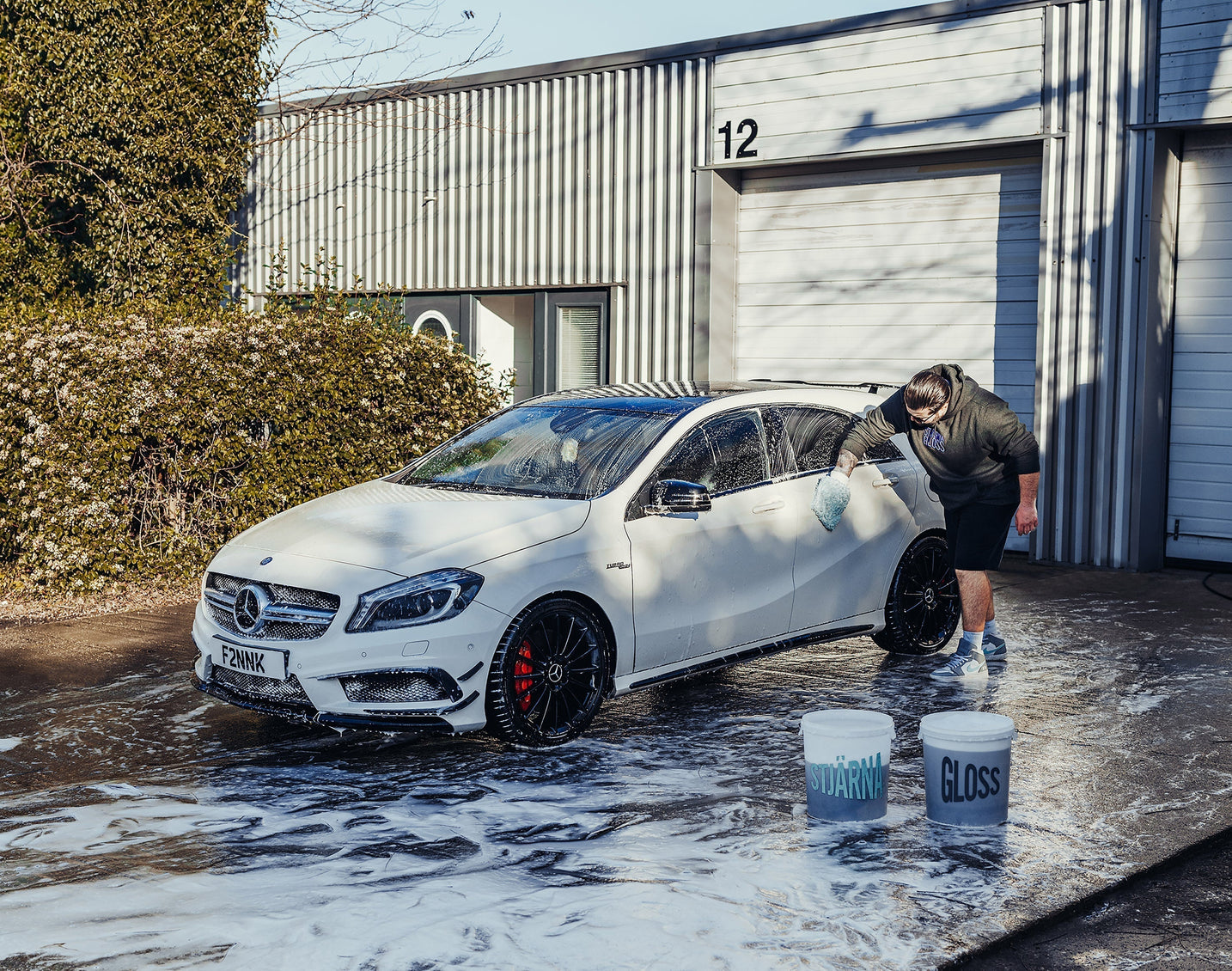What do I need to start with car care?
You want to stop using those horrible automated car washes, jokingly called “scratch and shines”? Because caring for your own car not only is better for your rides paint, it is also a hell of a lot of fun. At least if you use the right products, but you have come to the right place, so don’t worry.
In order to understand our recommendations on what you need to start with car care, you first need to understand the basics. Put simply, everything – and we really mean everything – in car care has one goal: to reduce, prevent, and/or eliminate paint damage.
Paint damage can be a lot of things: scratches, marring, swirls, holograms, stone chips, rust, and so on. Detailers obsess over these terms, and we will try to explain them to you in a future blog post. For now, it’s only important to understand that paint damage of any kind is bad for two reasons:
- Your car’s paint is there to protect the material underneath it (metal, aluminium, carbon fibre, plastics, …), making sure that body panels and materials on your car aren’t eaten away by mother nature.
- Paint damages reduce the gloss and shine of your car’s paint. Proper car care helps to prevent paint damages and helps to keep your car looking as good as it did the day it came out of the factory – if not even better.
So, you now know that paint damages are bad and that car care is all about preventing them. But how are paint defects created? The simple and shocking answer is by anything and everything that touches your car’s paint with enough force or speed. However, some cars will scratch easier than others, as some paint finishes are quite hard (generally found on German premium and luxury cars) and some are comparably soft (often on Japanese cars).
This means that even the softest and gentlest of washing methods can and will induce at least fine scratches to your car’s paint. So, the goal of car care is to clean, wash and protect your car’s paint in a way that minimises the risk of inducing (additional) paint defects. This is achieved by using the right materials and, more importantly, the right techniques.
That all being said, here are our recommendations on what you need to properly start with car care:
- A water source: In order to properly use your car care starter kit, you’ll need some kind of a water source. This can be as simple as a garden hose or – what we would recommend – a pressure washer. To start, something as simple and cost-effective as a Kärcher K2 will do, but manufacturers like AVA of Norway, Bosch, Nilfisk, Sunjoe, Ryobi, Big Boi or Kränzle also have nice machines. The more powerful your pressure washer is, the more effective it will be at supporting you cleaning your car, as e.g. snow foam lances work better with more powerful machines.
-
Prewash product(s): The prewash stage is the most important one in regards to preventing paint damages. To put it simple: the more dirt you remove before you touch your car, the less you’ll scrub dirt particles along your car’s paint. However, keep in mind that there’s no such thing as a touchless car wash. You’ll always need some sort of mechanical contact with your car to remove every trace of dirt that’s on it. For the prewash stage, you can use different types of products. The most important categories to know are
- Citrus pre-cleaners, pre-washes, traffic film removers (TFRs), bug and/or grime removers: Generally, these are more powerful at removing dirt, but they will be less gentle to delicate materials (such as bare metal and/or aluminium or high gloss black trim parts) and also less gentle to existing types of paint protection you may have applied to your cars paint. Our own Stjarnagloss Först is an excellent citrus prewash that will remove a hell of a lot of dirt, grime, and other nasty stuff that may be on your car, whilst being as gentle as possible to your car and your chosen paint protection. It’s a cracking product that you’ll need to try! You use them by spraying your car’s panels with it, let them sit there for as long as the respective manufacturer tells you, and then you rinse them off.
- Snow foam: Generally speaking, snow foams are a gentler way of doing the prewash. Usually, these cleaners are chemically less aggressive than pre-washes. On the flipside, snow foams usually don’t clean quite as well as pre-washes or traffic film removers, meaning they are more suitable for not-so-dirty cars or a regular maintenance wash. These cleaners work by soaking your car’s dirty paint, loosening and softening up dirt and debris, which then will be easier to remove during the following contact wash. You apply products like Stjarnagloss Snö by diluting them accordingly, filling them into a foaming pump sprayer or – which is definitely more fun – in a snow foam cannon like our Stjarnagloss Snöstorm which you then attach to your pressure washer. You then burry your whole car under a blanket of white foam (hence the name “snow foam”), let it dwell according to the manufacturer’s recommendations, and then rinse it off. And don’t forget to take those all-important pics for the Gram!
- Wash bucket(s) with some kind of dirt trap: Yes, theoretically, you can use any old bucket you bought in your local hardware store. However, we recommend that you get yourself some nice dedicated detailing buckets – like in our Stjarnagloss twin bucket kit. They are usually sturdier, will last you longer, and most importantly look much cooler. What is important is that you get buckets with some sort of a “dirt trap” in them. These things have different and funny names like “Grit Guard” (outdated in our opinion), “Dirt Lock”, or “Dirt Trap”. What they are supposed to do is help you to clean your wash mitt and free it from the dirt you picked up from your car as well as, more importantly, keep that dirt on the bottom of your wash bucket – because you don’t want to keep dragging that dirt on your car’s paint. There are two ways to go about this: you can either choose to go with the “one bucket – many mitts” wash method or the more popular “two bucket” wash method. We will talk about these two in a future blog post, but for a start we would recommend that you go with two buckets with proper dirt traps in them.
- Wash mitt(s): These are the things that will actually touch your car’s paint while you wash it. Forget about your dad’s old sponge, those things are outdated (even if they are not as bad as some people make them sound). And you’ll also don’t want wool mitts as those are notoriously hard to care for. What you want are modern, plush, and gentle microfibre wash mitts like our Stjarnagloss Lurvig. We recommend to get two of them: one for the lower panels of your car which are usually dirtier, and one for the upper parts.
- Car shampoo: No, dish soap will not work as a car shampoo. In general, there’s a reason why dedicated car cleaning chemicals exist. Dish soap is of lower quality, has to be used with aggressive sponges and rinsed away with a lot (!) of warm or hot water, whereas car shampoos need to create a glide film between your wash mitt and your car’s paint, needs to clean different types of dirt in a shorter amount of time with mostly cold water, and then needs to be rinsed away without leaving any residue behind. So do yourself a favour and get yourself a proper car soap. There’s a huge variety to choose from, but you can never go wrong with a pure, highly concentrated, pH neutral car shampoo without any additives like our Stjarnagloss Matta. Pour it into one of your wash buckets (the so-called “wash” bucket) according to the instructions on the bottle, give it a good stir (e.g. with your pressure washer), dunk your wash mitt into it, and start washing your car, going from top to bottom, regularly cleaning your mitt(s) in your second bucket (the one in which there’s no shampoo in it, the so-called “rinse” bucket). Rinse all the shampoo residue off when you’re done.
- Wheel cleaner: Your wheels are usually amongst the dirtiest parts of your car, needing specialised and strong cleaners like our Stjarnagloss Hjul. It’s a so-called “bleeding” wheel cleaner, meaning once sprayed onto your wheels it will react with the iron particles on them and change to a red or purple colour, showing you that it is ready to be rinsed off. You can support wheel cleaners with a wheel brush like our Stjarnagloss Grävling and instead of dedicated wheel cleaners you can also use a prewash, snow foam or car shampoo – especially if your wheels aren’t as dirty as your neighbour’s.
- Drying towel(s): After you washed your car, it’s time to dry it. For that, we use and recommend microfibre drying towels like the Stjarnagloss Törstig – throw away your old shammies! These towels not only are absorbent (otherwise they wouldn’t be called drying towels), but they are also comparably gentle to your car’s paint. However, remember what we said above: every time something touches your car’s paint, there’s a risk for paint damages. And no matter how soft and plush they are , this also accounts for microfibre (drying) towels. That’s why you can help them to glide better over the paint surface by spritzing something like a quick detailer (e.g. Stjarnagloss Silke) in the towel or use a drying aid such as Stjarnagloss Glatt so that there is less water on your car’s panels from the get-go.
- Protective product: We could (and probably will) write an extensive blog post just about protective products for car paint as there are so many different ones and so many varying aspects to them. To keep it short and simple, the main reason we apply protective products to our cars’ paints after cleaning them is to keep them cleaner for longer and make future washing easier. Don’t let anyone fool you: no protective product (except for paint protection films) will prevent scratches, no protective product will last for several years without the proper aftercare / maintenance, no protective product will magically repel dirt, dust, sand, bird poo or other stuff. These are myths. Protective products differ in their respective strength, chemical resistance, hydrophobic properties, and durability. But the “stronger” they are, the more difficult they become to apply. Something like a hybrid paste wax or our spray sealant Stjarnagloss Pärla will offer a balanced set of capabilities, meaning they are fantastically easy and straightforward to apply whilst offering a reasonable amount of durability. To apply those products, you’ll need applicators in the case of a wax, as well as microfiber towels to buff off (remove) the products after you applied them. For a start, we recommend to go with two towels.
- Glass cleaner: A special surface on cars is glass. It’s special in the respect that you’ll need to be able to look through it. This means that you need to clean it to a streak-free finish. Glass cleaners like Stjarnagloss Glass work best here, especially if you combine them with dedicated glass cleaning towels. Out tip: don’t be greedy and get two of those towels. You first spray the glass cleaner on your car’s glass (for interiors, spray it into the towel instead), scrub the glass with the first towel until all dirt is removed, then wipe all residue off with the second towel. That’s how you get a top-notch, streak-free finish every time.
- Tire and trim dressing: It’s debatable if you really need a tire and trim dressing for your car care starter kit. But in our opinion, a detail is only complete if your tires and trim parts look like new. Stjarnagloss Gummi is an easy-to-use product for both, your tires and trim parts, giving them a like-new appearance. Apply this product with an applicator, give it a few minutes to soak in, and then wipe off residue with a fresh towel.
- Interior cleaner and/or detailer: After you’re done with the exterior of your car, it’s time to treat the interior. There are two ways of treating interior surfaces: you can either use dedicated cleaners and conditioners for every type of material (plastics, vinyl, cloth, leather, wood, high gloss panels, aluminium, glass, screens, …) or you can keep it simple, make your life a lot easier, and just use one quality product that is suitable for every surface – like Stjarnagloss Inni. To work with such an interior cleaner or detailer, you’ll also need at least one microfiber towel.
That’s it. Yes, there’s a shitload of additional products available on the market, like for example tar and glue removers, iron fallout removers (if you weren’t smart enough to get Stjarnagloss Hjul which is a wheel cleaner and a fallout remover), clay bars, polishes, glazes, and much much more. But to be honest, you don’t need those at the beginning of your car care journey.
To make things easier for you, here’s a summary of all the above mentioned information with just the products that we would recommend to start in car care – including links to the respective products:
- 1x Water source (pressure washer)
- 1x Stjarnagloss Först (prewash)
- 1x Stjarnagloss Snö (snow foam)
- 1x Stjarnagloss Snöstorm (snow foam cannon)
- 1x Stjarnagloss twin bucket kit (car wash buckets)
- 2x Stjarnagloss Lurvig (microfiber wash mitts)
- 1x Stjarnagloss Matta (pure car soap)
- 1x Stjarnagloss Hjul (wheel cleaner)
- 1x Stjarnagloss Grävling (wheel brush)
- 1x Stjarnagloss Törstig (drying towel)
- 1x Stjarnagloss Pärla (spray sealant)
- 1x Stjarnagloss Glass (glass cleaner)
- 1x Stjarnagloss Gummi
- 1x Stjarnagloss Inni
- 2x Stjarnagloss Rutig glass cleaning towels
- 3x Stjarnagloss Fluffig microfiber towels
As an additional service to you, to support your inner lazy bastard, and because the author of this blog post – Andreas – asked us to do so, we put together a beginner kit in his name which you can find here – including a nice discount. (coming soon)
You now have almost everything that you need to start with car care. The last and most important thing: have fun, because that’s what car care should be and Stjarnagloss is all about!
